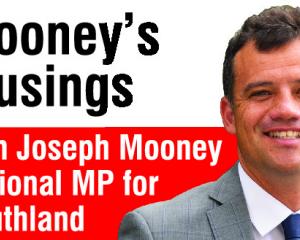Clutha's rural water schemes could be considered for exclusion from the incoming Three Waters reforms, officials say.
Speaking at an information session for scheme representatives in Balclutha on Thursday night, Department of Internal Affairs partnerships director Allan Prangnell said the district’s rural water schemes were well run and undergoing upgrades that would leave residents with a high standard of drinking water.
Many of the schemes were stockwater schemes on which households drew for drinking water.
Taking into further account their size and complexity, it was questionable whether they should be included in the reforms, he said.
‘‘I’ve got my ears open to this question, and I think it’s fair to say that what the Government’s proposing by way of the reforms is that all council-owned and operated water services would become part of [them].
‘‘What I’ve heard today is: does it make sense for these rural drinking water schemes to be part of that, or should they stay outside it?
‘‘They are different. They have different service levels, different purposes, quite strong committees, a strong sense of ownership. That’s the conversation I want to go back to Wellington with.’’
Mr Prangnell and incoming water regulator Taumata Arowai chief executive Bill Bayfield spent the preceding day touring some of the district’s 6700km of water schemes by car and helicopter, accompanied by Clutha District Council staff.
In addressing the meeting, Mr Bayfield took the opportunity to clarify the background to the proposed reforms and provide details about the next steps in the process.
The Water Services Bill is expected to be passed into law as the Water Services Act next week, formally empowering the new regulator.
‘‘We were set up after the Havelock North review on drinking water, after basically the poisoning of 5000 people and the killing of four.’’
That led to the job being taken from the Department of Health, and given to a new regulator.
‘‘It looks as if we’ll go live as the regulator sometime early in November. [We’ve] been set up very clearly to do a job to lift the performance of New Zealand’s drinking water, public wastewater and urban stormwater community.’
Mr Prangnell said he expected it would take three to 10 years for the ‘‘new regime’’ to come fully into force.
‘‘The whole standard of what we’re going to do is being lifted. It’s not being lifted any higher than probably 90% of the OECD nations. We’re just bringing New Zealand up to that standard. That’s huge.’’
Mr Bayfield echoed Mr Prangnell’s comments about Clutha and its ‘‘unique’’ drinking water provision.
‘‘You are an absolute special case. For you and for your staff, I can see that acceptable solutions that are being contemplated for many places in New Zealand are not going to work. You’re way ahead of that already.
‘‘The size and quality of your schemes is also unique.
‘‘What I saw today was really very well run schemes that will have little difficulty meeting the new standards.’’
Councils need to provide feedback on the initial proposals to Local Government Minister Nanaia Mahuta by October 1.
Clutha will hold an extraordinary council meeting in Balclutha on Monday afternoon, to formalise its feedback.












